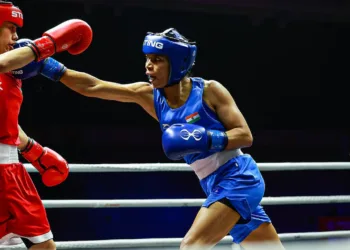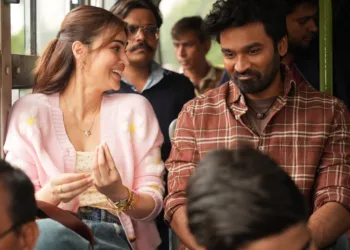The AIFF and its commercial partner FSDL have submitted a comprehensive joint proposal to the Supreme Court that promises to reshape the landscape of Indian football, offering solutions to the ongoing Master Rights Agreement deadlock while introducing transparent governance reforms that could set new standards for sports administration across the country.
Table of Contents
Breakthrough Proposal: Key Provisions Unveiled
The joint submission represents a watershed moment for Indian football, with AIFF agreeing to conduct an open, competitive, and transparent tender process for selecting a new commercial partner. This marks a significant departure from the closed-door negotiations that have characterized the sport’s commercial dealings in recent years.

| Key Proposal Elements | Details | Timeline |
|---|---|---|
| ISL Season Start | December 2025 | Fixed Date |
| Tender Completion | October 15, 2025 | Deadline Set |
| Super Cup Return | Pre-ISL Season | TBA |
| Commercial Rights | Open Bidding Process | Ongoing |
The proposal addresses multiple stakeholder concerns while ensuring compliance with FIFA and AFC regulations, potentially preventing another international ban that could devastate Indian football’s global standing.
FSDL’s Strategic Concessions
In a remarkable show of cooperation, FSDL has agreed to waive its contractual ‘Right of First Negotiation’ and ‘Right to Match’ privileges under the Master Rights Agreement. This decision effectively levels the playing field for all potential commercial partners, transforming FSDL from a privileged incumbent to just another bidder in the upcoming tender process.
FSDL’s key commitments include:
- Issuing a No Objection Certificate for the tender process
- Advancing the final tranche of Rs 12.5 crores if required
- Not objecting to new rights holders during the MRA period
- Supporting the larger interests of Indian football over commercial advantages
An official close to the development revealed to Khel Now: “Our commitment to Indian football against our own commercial interest, FSDL is enabling AIFF to do this in the larger good of the sport and footballers by giving an NOC and relinquishing its Right of First Negotiation and Matching Right.”
Transparent Governance Framework
The AIFF has committed to conducting the new tender process in strict compliance with multiple regulatory frameworks, including the National Sports Development Code 2011, the National Sports Governance Act 2025, the AIFF Constitution, and applicable FIFA/AFC regulations. To ensure maximum transparency, the federation may engage one of the ‘Big 4’ consulting firms – Deloitte, KPMG, Ernst & Young, or PricewaterhouseCoopers.
This represents a fundamental shift toward international best practices in sports governance, potentially setting a template for other Indian football organizations and sports federations nationwide.
ISL Revival Timeline
After months of uncertainty that left players, clubs, and fans in limbo, the proposal provides concrete timelines for Indian football’s premier competition. The ISL is scheduled to resume in December 2025, following completion of the tender process by October 15.
Season Structure and Competition Calendar
| Competition | Proposed Timeline | Duration |
|---|---|---|
| Super Cup | Pre-December | 2-3 weeks |
| ISL 2025-26 | December 2025 | 5-6 months |
| Playoffs | April-May 2026 | 3-4 weeks |
The proposal specifically mentions that the 2025-26 season may commence with the Super Cup, ensuring clubs and players remain competitively engaged during the transition period. This domestic tournament, open to clubs across multiple tiers, serves as both a competitive outlet and a revenue-generation mechanism.
FIFA Pressure and International Stakes
The urgency surrounding the proposal stems from FIFA and AFC warnings about potential international sanctions. FIFA has set an October 30, 2025 deadline for AIFF to finalize its new constitution and resolve ongoing governance issues, with the threat of another ban looming large.

The AFC General Secretary had specifically sought clarity on ISL resumption timelines, with the governing body expressing deep concern over the suspension’s impact on Indian football’s development and international commitments. The concrete December start date should alleviate these concerns while demonstrating AIFF’s commitment to meeting international standards.
Supreme Court’s Role and Next Steps
The Supreme Court has scheduled the next hearing for September 1, 2025, where Justices P.S. Narasimha and Joymalya Bagchi may pronounce final judgment on the AIFF constitution case. The bench has previously expressed optimism about Indian football’s potential, with Justice Narasimha noting that “India has excellent talent” and the court would “go the extra mile” to ensure proper governance structures.
The court’s intervention represents unprecedented judicial involvement in Indian football administration, reflecting both the sport’s importance and the severity of governance failures that necessitated legal intervention.
Club and Player Impact
The prolonged uncertainty has severely impacted ISL clubs, with several organizations either suspending operations or delaying salary payments to players and staff. Eleven clubs, including Bengaluru FC, Hyderabad FC, and Kerala Blasters, have written to authorities highlighting the crisis’s impact on player welfare and India’s international competitiveness.
The global players’ union FIFPRO has also written to FIFA, describing the situation as “alarming” and urging intervention to protect player rights and livelihoods. The proposal’s timeline should provide much-needed certainty for these stakeholders.
Commercial Implications
The open tender process represents a significant commercial opportunity, with Indian football’s broadcast and sponsorship rights attracting increasing interest from global entities. The transparent bidding structure could potentially increase the sport’s commercial value while ensuring better terms for clubs and players.
Previous Master Rights Agreements have been criticized for lack of transparency and stakeholder consultation. The new framework addresses these concerns while aligning with international sports governance standards.
Constitutional Reform Context
The proposal emerges against the backdrop of ongoing constitutional reforms within AIFF, overseen by former Supreme Court Justice L. Nageswara Rao. The new constitution introduces term limits, age restrictions, player representation requirements, and no-confidence motion provisions – all designed to enhance transparency and accountability.
These reforms, combined with the transparent commercial partner selection process, could fundamentally transform Indian football administration, moving away from the personality-driven governance that has characterized the sport for decades.
Regional and National Impact
Success of this proposal could have implications beyond Indian football, potentially serving as a template for other sports federations facing similar governance challenges. The Supreme Court-supervised process demonstrates how judicial intervention can facilitate positive sporting reforms.
The emphasis on transparency and stakeholder inclusion aligns with broader governance reforms across Indian sports, potentially accelerating professionalization and international competitiveness.
Future Challenges
While the proposal addresses immediate concerns, implementation challenges remain. The tight timeline for tender completion requires efficient execution, while ensuring all stakeholders remain committed to transparent processes. Additionally, the new commercial partner must quickly establish relationships with clubs, broadcasters, and sponsors to ensure smooth ISL operations.
The AIFF must also navigate ongoing constitutional reforms while managing the transition to new commercial arrangements, requiring careful coordination between legal, administrative, and sporting priorities.

The joint proposal represents a critical juncture for Indian football, offering a pathway from crisis to renewed growth. Success depends on faithful implementation of transparent processes and continued stakeholder cooperation, but the framework provides genuine hope for the sport’s future development and international competitiveness.
Read More: Alejandro Garnacho Joins Chelsea for £40m from Manchester United
FAQs
When will the Indian Super League resume?
According to the AIFF-FSDL joint proposal, the ISL is scheduled to start in December 2025, following completion of the transparent tender process for selecting a new commercial partner.
What changes has FSDL agreed to make in the proposal?
FSDL has agreed to waive its ‘Right of First Negotiation’ and ‘Right to Match’ privileges, issue a No Objection Certificate for the tender process, and advance Rs 12.5 crores to AIFF if needed.
How will the new commercial partner be selected?
AIFF will conduct an open, competitive, and transparent tender process by October 15, 2025, potentially involving Big 4 consulting firms to ensure transparency and compliance with all applicable regulations.
What is the Super Cup’s role in the proposal?
The Super Cup, a domestic tournament open to clubs across multiple tiers, may precede the ISL season to ensure players and clubs remain competitively engaged during the transition period.
When is the next Supreme Court hearing on this matter?
The Supreme Court will hear the case again on September 1, 2025, and may pronounce final judgment on the AIFF constitution, which is crucial for avoiding potential FIFA sanctions.








